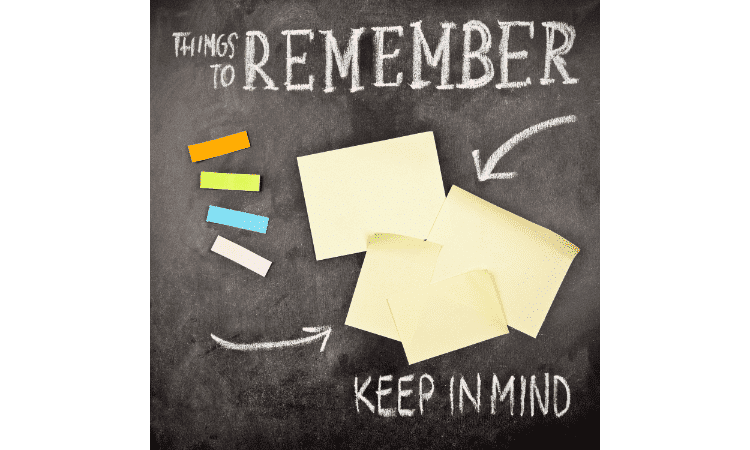
The night before an exam, your mind is racing. You’re tired and nervous about the next day. You’re busy thinking about what you need to do for the test and how you can prepare yourself for it. But if you think about it from a different perspective, there are actually some things that can help make this experience easier on everyone involved.
In this article, I’m going to talk about what I did when I was in high school that made me feel confident and updated during the night before an exam, as well as some tips on how other people can cope too! If these methods work for you then great! If not then at least I hope they give you some ideas of what might help make your life easier during tests.
Relax

The most important thing you can do is relax. Here are some relaxation techniques you can use to unwind:
● Listen to music. Music is a great way to calm down and transition into bedtime, but don’t listen to the same thing every time! Try switching up your playlists with new music, classics, or even a podcast.
● Take a bath. Hot water can do wonders for relaxing muscles and helping you fall asleep faster; try adding some lavender essential oil if it helps with your anxiety too.
● Read a book/play video games/do anything else that helps you relax before bedtime – but make sure it doesn’t involve blue light from electronics (this can make it harder for your body and brain to wind down at night).
● Meditate/yoga – These effective activities help slow heart rate and breathing which will help calm nerves as well as improve sleep quality overall (and might even help prevent insomnia). It’s been shown that meditation in particular has many health benefits including reduced stress levels over time which makes it great for dealing with exam stress at any time during school year not just finals week specifically.
Don’t study too late on this night

You shouldn’t study too late on this night. It will make you tired, it will make you frustrated and it will make your brain forget things if you study too long. When your brain is tired, it’s harder to remember things because your mind won’t take in new information as readily. Also, if you are studying for a long period of time (like studying for hours), then the day before the test feels like an eternity and that can cause anxiety over whether or not everything was covered during all of those hours spent reviewing the material. This kind of thinking can become overwhelming; you might start fearing that maybe some concepts weren’t understood enough when they were reviewed multiple times prior to their final review session before taking the test in question.
I recommend spending no more than two hours on any given subject area that needs review before going to sleep at night and waking up early enough so that there is no pressure put upon oneself during this time period in order to complete last-minute reviews successfully without feeling rushed or overwhelmed by how much work still needs to be done right before taping one’s feet back into those dreaded shoes again.
Eat a healthy meal

Having a healthy meal before your test is important. But it’s also a good idea to be mindful of what you eat, and how much.
● Eat something healthy but not too much. The night before a educational test, most students are worried about the next day and may not have time to eat properly.
It’s easy to get distracted by junk food or less-than-ideal foods that you think will give you energy for the test—but this is actually counterproductive in several ways: first, it can make you feel sick and tired on test day; second, it doesn’t provide any health benefits (and might even do more harm than good).
Instead of reaching for fast food or sugary treats like candy bars or soda pop, try opting for things like fruit smoothies made with yogurt or almond milk; fresh vegetables dipped in hummus; nuts like almonds or walnuts on whole-grain toast topped with cheese (or both!). These healthier options will help fuel up while still giving your body some of what it needs while preparing itself physically as well as mentally for tomorrow’s big day.
Don’t drink too much water

Drinking too much water can cause you to have to pee, which interrupts your studying and sleep. If you’re going to drink water at bedtime before a test, try not to drink any after 9 p.m., since drinking too much right before bedtime may keep you awake.
If possible, don’t focus on drinking a lot of water if you’ll have to drive somewhere for a test in the morning (like school). You might end up needing more than just one bathroom break.
Revise notes

Now is the time to go over your content or personal notes. You’ll want to make sure you’re able to recall everything you’ve studied, so practice by reading through them and asking yourself if you can explain the information contained in them. If this doesn’t work, try explaining what the notes say out loud or in writing. This will help ensure that you know exactly how each piece of information fits into your bigger picture understanding of the material.
If possible, make an outline with all of these ideas so that they’re organized and easy for you to review before taking a test.
Think positive

While you may be feeling anxious about the exam, there are things you can do to get your mind in a more positive state. First, take a few moments to think about how you will go into the exam, how you will perform and what results this will produce. In other words: visualize yourself doing well on the test and then visualize yourself leaving the exam knowing that everything went perfectly.
This is important because research has shown that visualizing success before an activity can actually improve performance during said activity (Mangelsdorf et al., 2002). Visualizing yourself failing does not help much either! So instead of dwelling on fears or concerns, keep yourself relaxed and perform better in tomorrow’s exam.
Remember necessary things

Remember to bring all the essentials. Some of these items include food, water, pen or pencil, paper or notebook, book(s), tissues, phone and charger (if using data or Wi-Fi at the library), wallet (with money for parking if needed), the medication that you need to take on a regular basis (especially if it’s not a pill), bag with some extra clothes just in case you have an accident during your exam OR that you get sick after having been outside without realizing it while taking the test (or before going inside). You also want to make sure your pencil sharpener isn’t broken before starting.
Get enough sleep

It’s important to get enough sleep. Sleep is when your brain processes information, strengthens memory and consolidates what you’ve learned. If you don’t get enough rest at night, it can affect how well you do on an exam.
Your body also needs adequate rest to function properly the next day—and your heart needs a good night’s sleep so that it can pump blood throughout your body during the day.
Set an alarm

● Set an alarm for the morning. The first alarm should be set for seven hours before your exam, regardless of whether it’s a morning or an afternoon exam (15 minutes before is the right rule of thumb).
● If you live in a place where you’ll be able to get some fresh air, go outside and walk around before setting your second alarm. If not, try stretching or doing some push-ups while listening to music that gets your blood pumping—it could help loosen up any tension in your body and make it easier for you to fall asleep when those last five minutes are up.
● After setting the second alarm, go ahead and take a shower if possible; this will help wake up various parts of the body faster than just taking off pajamas and hopping into bed would do alone! It’s also nice because once all these actions have been taken care of, there won’t be anything left hanging over from earlier in the day except getting ready for bedtime activities like reading or watching TV until going to sleep at least an hour later than usual (ideally).
Prepare for the morning

The night before an exam, you should get a good night’s sleep and wake up early enough to eat breakfast. You may also want to pack your belongings for the exam, or even take a quick shower if you have time. You probably won’t be able to concentrate on studying as well unless you relax first. If there is some music that helps calm your nerves, then play it! It might also help if someone else was in the room with you so they can be there when something goes wrong during the exam (like having forgotten something important).
Conclusion
The night before an exam is a stressful time for students. They want to do well on the test, but they also have to study for other classes, work on papers and projects, spend time with family or friends, and get enough sleep. It can be hard to find time in your busy schedule for studying when you have so much else going on in your life. However, if you take some steps to prepare yourself ahead of time and plan accordingly during this stressful period, it will be easier for you when exam day finally arrives.
Also Read : – Ways to Improve your Memory and Ace the Exams











